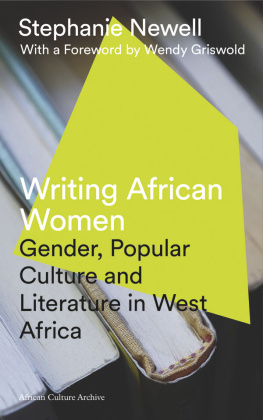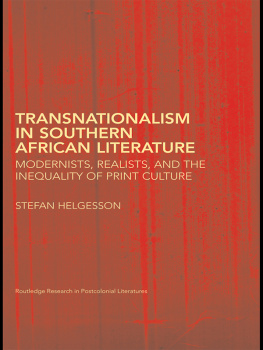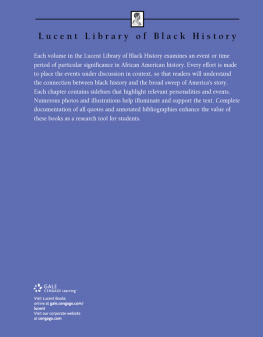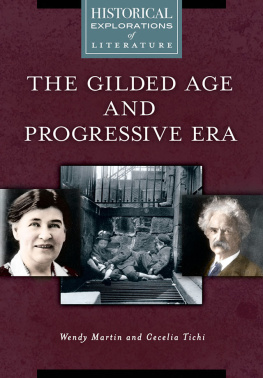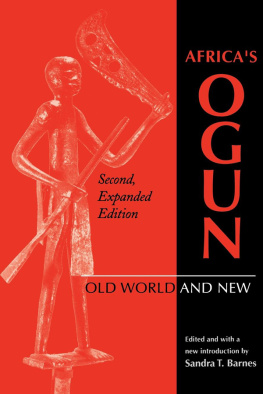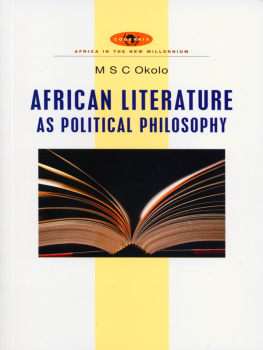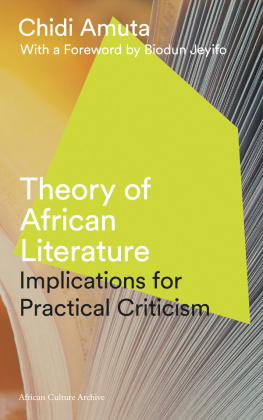
African Culture Archive
Over the past forty years, Zed has established a long and proud tradition of publishing critical work on African issues, offering unique insights into the continents politics, development, history and culture. The African Culture Archive draws on this rich backlist, consisting of carefully selected titles that even now have enduring relevance years after their initial publication. Lovingly repackaged, with newly commissioned forewords that reflect on the impact the books have had, these are essential works for anyone interested in the cultural and literary landscape of the continent.
Other titles in the archive:
Land, Freedom and Fiction: History and Ideology in Kenya
David Maughan Brown
Theatre and Cultural Struggle under Apartheid
Robert Mshengu Kavanagh
Theory of African Literature: Implications for Practical Criticism
Chidi Amuta
About the author
Stephanie Newell is a professor of English at Yale University, specialising in West African literature. Her other books include The Power to Name: A History of Anonymity in Colonial West Africa (2013) and The Forgers Tale: The Search for Odeziaku (2006).
Wendy Griswold is the Bergen Evans professor of humanities at Northwestern University. Her books include Cultures and Societies in a Changing World (new edition 2012) and Bearing Witness: Readers, Writers, and the Novel in Nigeria (2000).
Writing African
Women
Gender, Popular Culture and
Literature in West Africa
Edited by Stephanie Newell
With a new Foreword by Wendy Griswold

Zed Books
LONDON
Writing African Women: Gender, Popular Culture and Literature in West Africa was first published in 1997 by Zed Books Ltd, The Foundry, 17 Oval Way, London SE11 5RR, UK.
This ebook edition was first published in 2017.
www.zedbooks.net
Copyright individual chapters the contributors, 1997
Editorial copyright Stephanie Newell, 1997
The right of Stephanie Newell to be identified as the author of this work have been asserted by her in accordance with the Copyright, Designs and Patents Act, 1988
Cover design: Kika Sroka-Miller.
All rights reserved. No part of this publication may be reproduced, stored in a retrieval system or transmitted in any form or by any means, electronic, mechanical, photocopying or otherwise, without the prior permission of Zed Books Ltd.
A catalogue record for this book is available from the British Library
ISBN 978-1-78699-069-3 hb
ISBN 978-1-78699-010-5 pb
ISBN 978-1-78699-008-2 pdf
ISBN 978-1-78699-007-5 epub
ISBN 978-1-78699-009-9 mobi
Contents
STEPHANIE NEWELL
NANA WILSON-TAGOE
BAYO OGUNJIMI
AKOSUA GYAMFUAA-FOFIE
JANE BRYCE
NAANA JANE OPOKU-AGYEMANG
CHINYERE GRACE OKAFOR
THEODORA AKACHI EZEIGBO
OBODODIMMA OHA
MARGARET HAUWA KASSAM
IBIYEMI MOJOLA
CHIOMA OPARA
SANI ABBA ALIYU
CHINYERE GRACE OKAFOR
STEPHANIE NEWELL
ADEPEJU LAYIWOLA
Acknowledgements
This book was made possible by generous grants from Stirling Universitys Internal Research Fund, and the Carnegie Trust for the Universities of Scotland.
The editor wishes to thank Mamie Prentice, Kathleen Murray and Margaret MacMenaman for their secretarial assistance. Special thanks to Susan Sinclair for her invaluable proof-reading skills.
Foreword by Wendy Griswold
In Writing African Women , Stephanie Newell began her introduction with a line that still rings true: West African societies overflow with local, culturally specific constructions of gender which circulate in literature and popular representations. Twenty years ago, people who opened Newells collection of critical essays knew what they were getting: varied reflections on the place of women as writers, protagonists and readers in West African novels, stories and poetry. The essays offered sorely needed conceptual tools for understanding the relationship between gender and power in its many forms and the capacity of cultural objects to perpetuate or undermine these power structures.
In the twenty-first century each term in the title has exploded. What is writing? Does texting count? Tweeting, blogging, communicating via Snapchat and websites? Are the power relationships the ones that forced the late Buchi Emecheta to get up before dawn in order to sneak in some writing before her husband and childrens demands took over at play in the digital age?
And what does African mean? Yewande Omotoso was born in Barbados, grew up in Nigeria and lives in Johannesburg. Her novel The Woman Next Door takes place in Cape Town, England and Nigeria. Is she African? Is this a West African novel? A South African one? A global one? And if the latter, does the global bleach out the local, culturally specific constructions of gender?
Finally, what does it mean to be a woman, and what type of woman, indeed what other sexual or gender identity, might one be? The man/woman binary that feminists and womanists and everyone else long assumed has broken down in the new century. Although to my knowledge West African writers have not yet addressed transgendered, bi, genderqueer, and other non-normative sexualities, it can only be a matter of time. Meanwhile Chinelo Okparantas Under the Udala Trees , one of the most talked about novels from the new generation, forthrightly dissects the pains, and celebrates the joys, of lesbian love.
Considered together, these three questions raise a fourth, that of cultural authority. Who gets to decide what is African, what is gender, what is literature, what stories are worth telling? How are they told? Where does the power lie? We might want to rewrite Newells opening sentence: West African societies overflow with transnational, culturally hybrid, fluid constructions of gender, constructions that circulate globally and digitally, adopting and adapting to issues raised elsewhere while struggling to maintain a voice rooted in the continents social history. Fair enough. Mariama B didnt have a website, and readers never had to wonder if Flora Nwapa, well-travelled as she was, should be considered Nigerian. Now such questions, and such communicative acts, are inescapable.
Given the yawning gap between then and now, what might these old essays have to tell new readers? It is well understood that localism and globalism are not mutually exclusionary but mutually constructive; to put it more strongly, nobody burrows into the local cultural specificities like a cosmopolitan. Focusing on gender, we must acknowledge that the longstanding African localisms based on the gendered binary patriarchy, reduction of women to their fertility and even to their production of male progeny, domestic violence, lost property rights, dependency, polygamous rivalry have not gone away, and the sharp, feminist eyes of these essayists continue to facilitate exploring the conditions of gender.
For African women, things have not so much fallen apart as metastasized, as the new millennium generates new versions of old problems. To cite just one example: if earlier cohorts contended with, and wrote about, domestic violence, the current generation faces domestic, terrorist and military violence. In Chibundu Onuzos Welcome to Lagos , a teenage girl in the Delta faces rape by the very Nigerian soldiers who are supposed to be keeping peace. Boko Haram has made sexual violence a matter of policy.
While posing such questions might suggest that the issues considered in Writing African Women are no longer relevant, the exact opposite is the case. In the contemporary climate, to suggest that women African and otherwise have somehow moved past the old, binary-based problems, to see gender as a construction, a performance, that can be evaporated with the application of enough theory, to believe we have entered a post-feminist era where power floats free from sex, would be irresponsible, even fatuous. Clear, informed thinking about the gendered nexus of culture and power is needed more than ever. The new publication of Newells collection is an event to be applauded, and its contents to be pondered.
Next page
